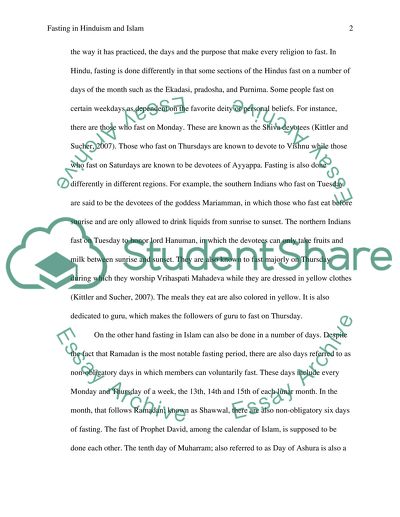Cite this document
(“Fasting in hinduism and islam Research Paper Example | Topics and Well Written Essays - 2250 words”, n.d.)
Fasting in hinduism and islam Research Paper Example | Topics and Well Written Essays - 2250 words. Retrieved from https://studentshare.org/religion-and-theology/1403340-fasting-in-hinduism-and-islam
Fasting in hinduism and islam Research Paper Example | Topics and Well Written Essays - 2250 words. Retrieved from https://studentshare.org/religion-and-theology/1403340-fasting-in-hinduism-and-islam
(Fasting in Hinduism and Islam Research Paper Example | Topics and Well Written Essays - 2250 Words)
Fasting in Hinduism and Islam Research Paper Example | Topics and Well Written Essays - 2250 Words. https://studentshare.org/religion-and-theology/1403340-fasting-in-hinduism-and-islam.
Fasting in Hinduism and Islam Research Paper Example | Topics and Well Written Essays - 2250 Words. https://studentshare.org/religion-and-theology/1403340-fasting-in-hinduism-and-islam.
“Fasting in Hinduism and Islam Research Paper Example | Topics and Well Written Essays - 2250 Words”, n.d. https://studentshare.org/religion-and-theology/1403340-fasting-in-hinduism-and-islam.


